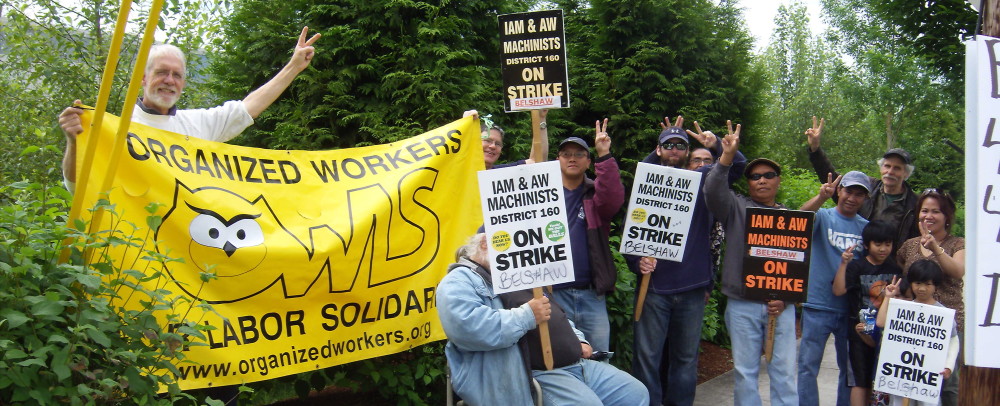Report on the OWLS Meeting of March 24, 2015
Three retired refinery workers, Tom Montgomery, Dennis O’hern, and Doug Erlandson, gave a gripping account of how dangerous refinery work is, underscoring why safety was the major issue in the recent national refinery strike. Insurance costs for US refineries are five times higher than in Europe. The corporations who own US refineries have purposely neglected their OSHA mandate to provide a safe work environment for their employees for the purpose of maximizing profits. US refineries typically rely on equipment that has surpassed their functional life span. The State of Washington found that the horrendous 2010 tragedy at Tesoro Refinery in Anacortes, WA was “preventable.” On the picket line OWLS members learned that workers had long warned management that the heat exchanger responsible for the accident needed to be replaced. It was replaced only after 7 Tesoro employees were killed in an explosion at Tesoro.
Every refinery process is dangerous. Dennis O’hern called the deaths of 6 refinery workers in the 1998 Anacortes Equilon fire, “murder.” These workers were working on the coke exchanging process. Coke is the last byproduct of petroleum. It is a sludge that ends up in one of two massive drums. These drums are under extreme pressure and very hot. The two drums are filled and emptied at staggered times. While one drum is being filled, the other is being emptied on a sixteen hour rotation. Normally, the drums are cooled down by steam to safely open them. A power outage disrupted the process and the steam ports which normally cooled the coke had become plugged. L&I investigators later determined the drum needed 262 days to cool down. The process engineers ordered the drum opened thirty hours after power was reinstated. A warning by the night shift to the day shift went unheeded. Five workers and a supervisor perished. Refinery workers understand the message from their employers, “Your lives don’t matter.” On average a refinery worker dies every ten days. And the death rate is far higher among non-union refinery workers.
The particulars of the new contract are not being made available yet. Members ratified the deal the day before the OWLS meeting. It must have held enough promise for improvement, but as some of the United Steel Workers flyers pointed out, the companies have made big promises before and failed to follow through. The contract is settled, but this fight is not over. OWLS will be keeping an eye on this industry and will support the Steel Workers in their ongoing fight for safety in the Oil Refinery Industry.
Ongoing Labor Battles:
A contract has been signed by adjunct professors at Bellevue College while Seattle University is still trying to block union efforts of its adjunct professors.
Seattle Solidarity Network continues its fight against miscreant employers and landlords. A day laborer is still fighting for 9 days of wages stolen from him while working for a landscaping contractor. Sea Sol has organized a number of actions to win back the wages. Also Sea Sol is helping one of its members regain a stolen rent deposit.
There is upheaval at Group Health Hospital (GH). Hiring has been suspended along with cutbacks of staff. GH is selling off prime property on Capitol Hill and has closed the doors of its birth clinic.
The Space Needle Restaurant sent a letter to employees promising to increase employee wages if they voted out the union. This proves the owners, Howard S. Wright Corporation, could easily pay very good wages to all employees union or non-union. If the Space Needle workers fall for this ruse, the day will come when their employer will decide to reduce wages. Don’t give up that union!
